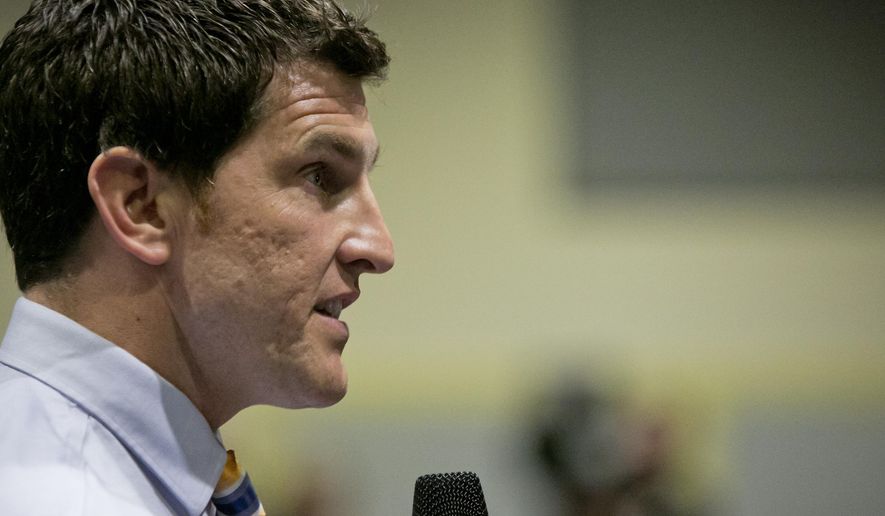Defense hawks on Capitol Hill are eyeing a massive boost in defense spending, but even they are beginning to embrace what’s long been a mantra for deficit hawks: There’s fat to trim at the Pentagon.
The military’s boosters are pushing for a budget-cap busting $150 billion increase in defense spending over the next two years, saying the department has been hollowed out by the “sequester” caps that have been in place since 2013.
But they are increasingly demanding better accounting for those dollars, saying that the bureaucracy has grown too big even as the troops in the field are scrimping.
“I will say moving forward long-term, we do have to get a handle on some of the spending in the military,” said Rep. Scott Taylor, a former Navy SEAL sniper.
Mr. Taylor said the Army readily acknowledges that it spends upwards of $500 million per year on certain infrastructure they don’t even use.
“Well, that’s stupid,” the Virginia Republican said. “But that also takes courageous decisions, [because] there might be a military base in your district that they don’t use.”
The House passed spending bills last year calling for $700 billion in defense spending in 2018, busting the spending caps and going well beyond what President Trump had requested.
Rep. Warren Davidson, Ohio Republican, says he supported the House-passed legislation because of immediate readiness problems the military is facing. But he said there is waste that needs to be addressed.
“What always happens as we’re working to solve the waste issues in defense is the bureaucracies keep getting fatter but the trigger-pullers out on the line get under-equipped,” said Mr. Davidson, a former Army Ranger.
The Pentagon recently announced its first full-scale audit in decades, after years of delays.
House Armed Services Chairman Mac Thornberry said knowing exactly how money is spent is “an essential requirement of spending money smarter,” though he said the audit won’t solve all the problems.
David L. Norquist, the Pentagon’s chief financial officer, estimated that the audit itself would cost $367 million this year, and that the department anticipated spending about $550 million to fix identified problems — a relative drop in the bucket of a $4 trillion federal budget.
“I think the taxpayers deserve at least the same level of confidence as a shareholder in the use of their money,” Mr. Norquist told lawmakers at a hearing earlier this month.
Deficit hawks said the audit could show the Pentagon awash in cash.
“It cuts against the argument that there’s just no way the military can function without considerably more taxpayer dollars,” said Christopher Preble, vice president for defense and foreign policy studies at the libertarian-leaning Cato Institute.
A 2016 inspector general’s report found that in 2015 alone, the Pentagon didn’t adequately account for $6.5 trillion worth of spending adjustments during regular bookkeeping, including $2.8 trillion of discrepancies in one quarter alone.
“How in the world do you fix a problem when you keep funding the problem?” Rep. Walter Jones, a longtime deficit hawk, asked Mr. Norquist at the hearing.
Mr. Norquist said the eye-popping numbers were discrepancies in journal entries, not lost money. But he acknowledged it’s worth examining.
Rep. Adam Smith, the ranking member on the Armed Services committee, said the unwieldy nature of auditing the massive department shouldn’t be a deterrent.
“To say that it’s not worth doing is like saying, ’Hey, we’ve screwed it up so bad for so long that, you know, the cost of fixing it has just become overwhelming, so just let us keep screwing it up,’” said Mr. Smith, Washington Democrat.
• David Sherfinski can be reached at dsherfinski@washingtontimes.com.




Please read our comment policy before commenting.